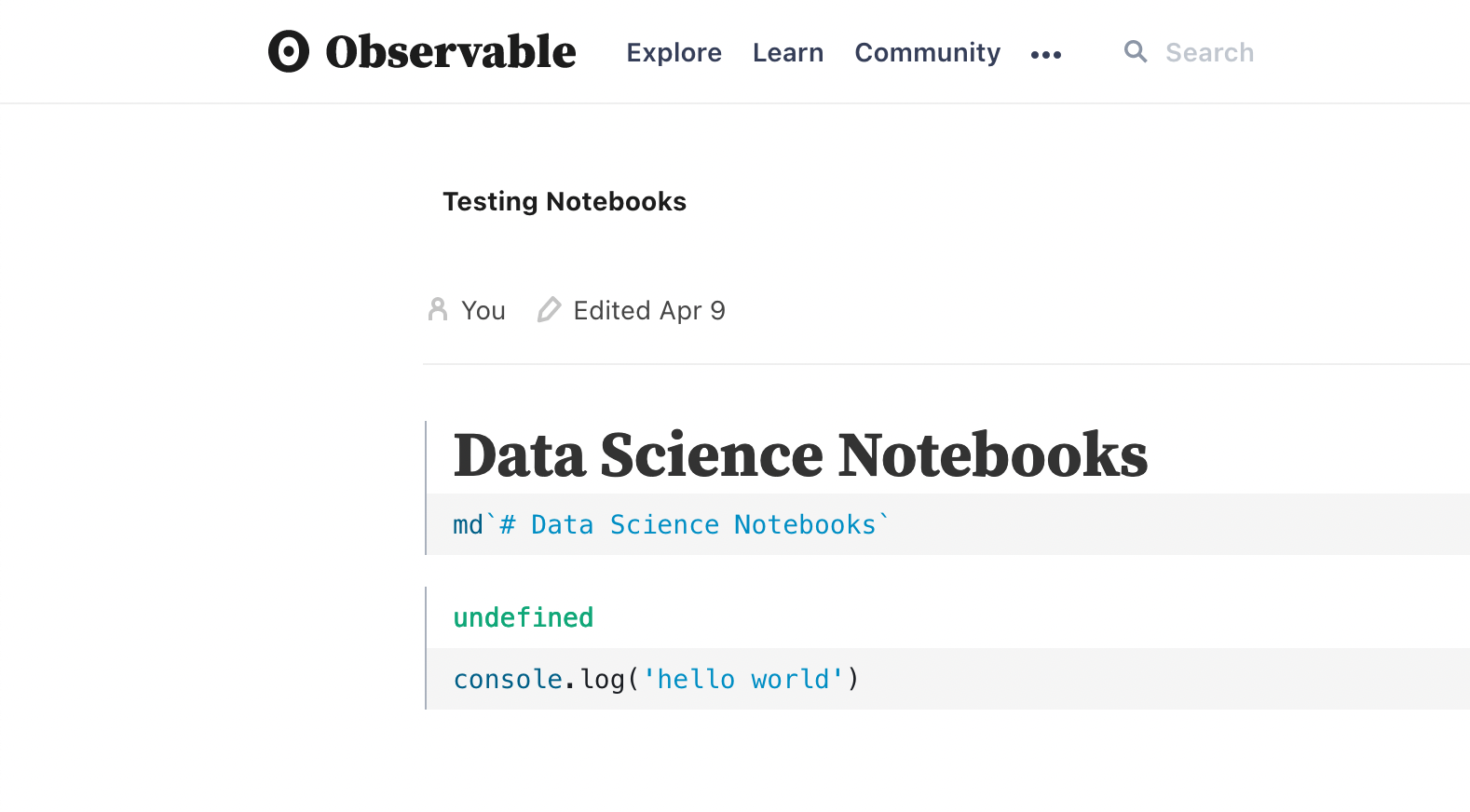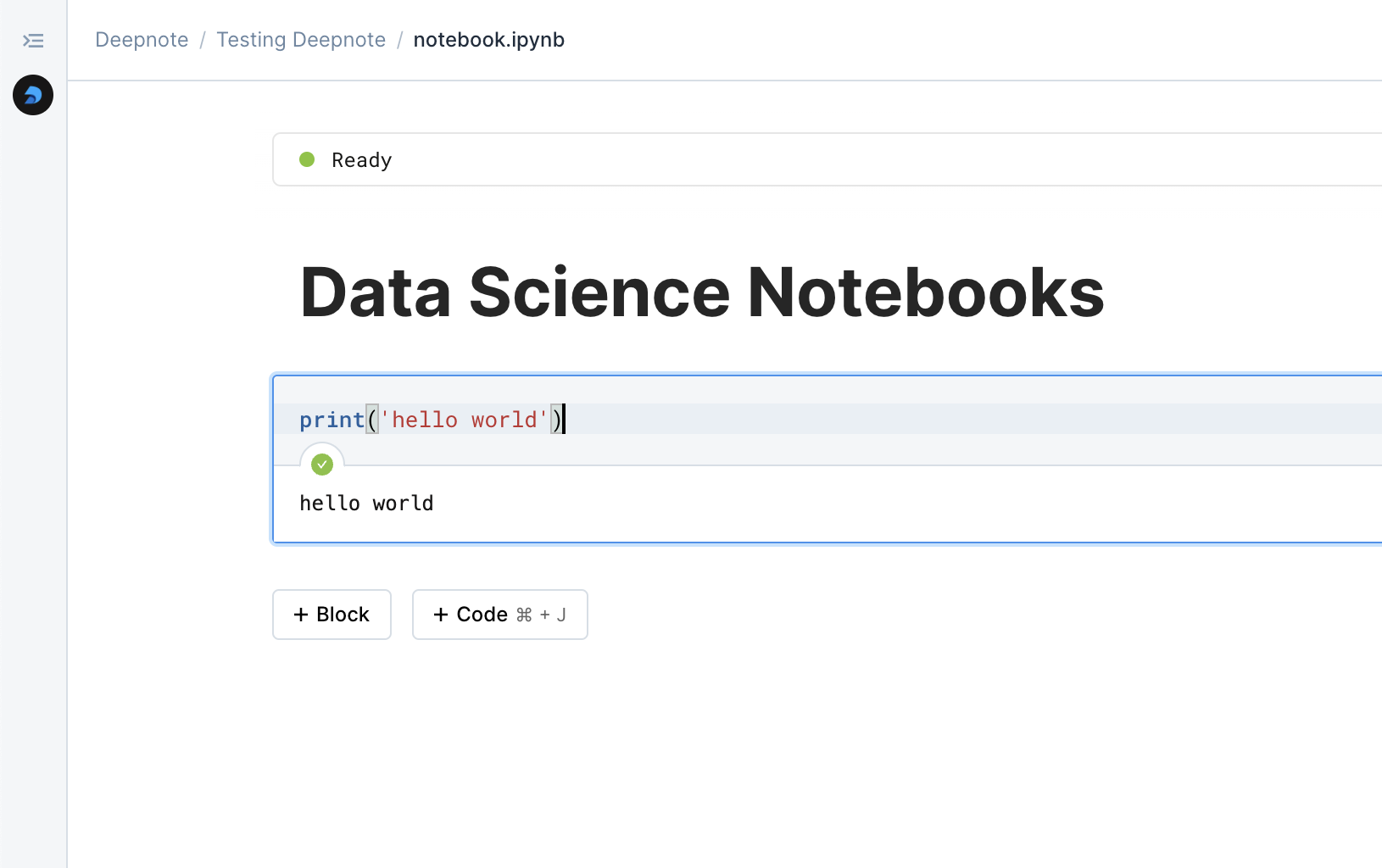

Observable

Comparing two data science notebooks.






The landscape of data analysis platforms continues to evolve, with Observable and Deepnote representing two distinct philosophies in how we interact with and share data. While both platforms aim to make data analysis more accessible and collaborative, their approaches and target audiences differ significantly, reflecting the diverse needs of modern data practitioners.
Observable, founded by D3.js creator Mike Bostock, embodies a vision where data visualization and interactive computing merge seamlessly with web technologies. The platform reimagines notebooks through the lens of reactive programming, creating an environment where changes propagate automatically and visualizations come alive. This approach reflects Observable's deep roots in the web development and data visualization communities.
Deepnote takes a different path, building upon traditional computational notebooks while modernizing the experience through cloud-native collaboration and integration features. The platform emphasizes team workflows and professional data science practices, creating an environment where analysis and collaboration coexist naturally.
Working in Observable feels distinctly different from traditional notebooks. Its reactive programming model means cells update automatically as their dependencies change, creating a fluid, interactive experience. The platform's JavaScript-centric approach makes it particularly powerful for creating dynamic visualizations and interactive dashboards that feel native to the web.
Deepnote provides a more familiar environment for data scientists, building upon established notebook conventions while adding modern features like real-time collaboration and AI-assisted development. The platform supports multiple programming languages and provides integrated tools for version control and project management, making it particularly suitable for professional data science teams.
Observable's approach to data handling reflects its web-first philosophy. The platform excels at working with web-based data sources and APIs, making it particularly effective for creating interactive visualizations and data-driven stories that can be shared widely on the web. Its integration with web technologies allows for seamless embedding of visualizations in other websites and applications.
Deepnote takes a more comprehensive approach to data integration, offering native connections to various data sources including major data warehouses, databases, and cloud storage solutions. This broad connectivity makes it particularly valuable for organizations working with diverse data sources and complex data pipelines.
The platforms' approaches to collaboration reflect their different target audiences. Observable emphasizes public sharing and community involvement, with features that make it easy to fork, remix, and embed notebooks. The platform has built a vibrant community around data visualization and interactive computing, where examples and templates are readily available.
Deepnote focuses on team-based collaboration within organizations, offering real-time editing, sophisticated permission management, and project organization tools. The platform's approach to collaboration is more structured, reflecting the needs of professional teams working on data science projects.
Observable finds its sweet spot among data visualization specialists, frontend developers, and those creating public-facing data experiences. The platform excels in scenarios where interactivity and visual communication are paramount, such as data journalism, technical demonstrations, and public-facing dashboards.
Deepnote appeals more to data science teams and analytics professionals working on complex analytical projects. The platform's support for multiple programming languages, extensive integration capabilities, and collaborative features make it particularly suitable for professional data teams working on production workflows.
The learning curve for each platform varies depending on your background. Observable requires familiarity with JavaScript and web technologies, making it more accessible to web developers but potentially challenging for data scientists used to Python or R. The platform's reactive programming model also requires a shift in thinking about how code executes and data flows.
Deepnote maintains a more traditional computational environment that will feel familiar to data scientists and analysts. While it introduces modern features like real-time collaboration and AI assistance, the core workflow remains aligned with established data science practices.
Choosing between Observable and Deepnote ultimately depends on your primary use case and team composition. Observable shines when creating interactive visualizations and data-driven stories for the web. Its reactive programming model and JavaScript foundation make it ideal for building dynamic, public-facing data experiences.
Deepnote proves more suitable for professional data science teams requiring a comprehensive platform for analysis and collaboration. Its support for multiple programming languages, extensive integrations, and team-focused features make it valuable for organizations building data-driven solutions.
Both platforms continue to evolve, with Observable strengthening its position in interactive data visualization and web-based computing, while Deepnote expands its collaborative features and integration capabilities. The future likely holds further specialization, with each platform deepening its core strengths while maintaining its distinct approach to data work.
Understanding these distinctions helps ensure you choose the platform that best aligns with your specific needs and objectives. Whether you prioritize creating interactive visualizations for the web or need a comprehensive platform for team-based data science, both Observable and Deepnote offer valuable solutions for modern data work.